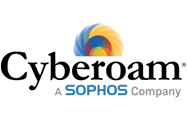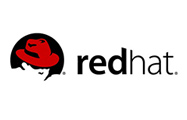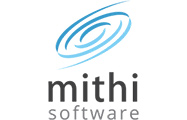Advantages of CCNA Certification Training Course
₹ 2,50,000+
Average Salary per Annum in India
$ 50,000
Average Salary per Annum in USA
15,00,000
Job Vacancies across the world
1,00,000
CCNAs in the world and the demand is increasing day by day
Why Choose CCNA Training and Certification Program In Delhi?
CCNA (CISCO Certified Network Associate) is an entry-level certification course issued by CISCO. After this course, every concept will be clear regarding all the fundamentals of networking and networking roles. CCNA certification and training program in Delhi provides you with knowledge about automation, IP services, security fundamentals, and programmability, along with other core and trending concepts. The CCNA training course gives you the opportunity to turn your career in the right direction. CCNA training and certification course is high in demand and helps you excel in your knowledge and skills with networking basics. Grras Solutions provides practical knowledge and job-ready skills to students for their successful careers. The CCNA course will open up all the success doors for making a bright career in the IT field.
Register NowAbout CCNA Certification Training Course
CCNA Course Overview
| Tracks | Regular track | Full day(Fastrack ) |
|---|---|---|
| Training Duration | 60 hours | 60 hours |
| Training Days | 30 days | 7 days |
Network professionals are in high demand. The HR professionals
filter them on basis of certification criteria. Certification becomes so
important that once you are certified you definitely get an added advantage
over those who have equivalent level experience this field. Certifications
actually speak up for you. With such certifications you achieve theoretical and
practical knowledge be it in Routing- Switching, Security, Wireless
Technologies.
Network Administrator :
You will have the opportunity to work with the company to create new solutions and customer offerings. You will handle to work to give Networking solutions for routing and switching.
Network Engineer:
The Network Engineer has the responsibility to set up, develop, and maintain computer networks in an organization, they are like a support system to the staff, client, and to their customers .
IT managers & IT Director :
Cisco Network Administrator after getting more experience and promotions are responsible for maintaining computer networks and problems which occur and their main work is to troubleshoot the problems occurred in the network of the organization.
CCNA Corporate Trainer:
The Cisco Network Trainer gives training to the students and corporate companies, work on the live projects and who choose to become a professional trainer in their career.

Enrollment For CCNA
Job Oriented Program
Our Job Oriented Program is one of a kind and a unique program that offers you 100% job guarantee right after completing the certification program and training with us. It is one of our renowned programs for producing job ready and experienced candidates with apt technical and soft skill knowledge demanded in the prompt evolving IT and digital industries.
Apply NowFREQUENTLY ASKED QUESTIONS
What is CCNA certification?
CCNA is Cisco Certified Network Associate certification and is provided by Cisco. This certification includes basic knowledge of networking and troubleshooting.
Do I need a college degree to enrol with CCNA training and certification course?
No, you don’t require any college degree or specialization to enrol with CCNA CCNA training and certification course.
CCNA certified people are required in which fields?
CCNA certification is beneficial for manufacturing engineers, plant administrators, and network and system engineers.
How many days take for the completion of this course if I choose the fast track method?
CCNA course takes only seven days to complete when you choose the fast track path.
Do you provide a course completion certificate with CCNA training and certification course in Jaipur?
Yes, we provide a course completion certificate with our training course.
What are the job opportunities after the CCNA training and certification course?
There are many job opportunities after the CCNA course including - * ● Network Administrator * ● Network Engineer * ● IT manager and IT director * ● CCNA corporate trainer
What CCNA course is best to start?
If you are at a fresher level, then you should start with CCNA and after that you can choose the specialty.
How can I contact you to know about the CCNA course training in detail?
You can call us or can contact us via e-mail at [email protected].
Can I take a demo class before joining the CCNA training course?
Yes, you can take a demo class after the registration.
What is the career scope in CCNA?
Most organizations are using Cisco products for their networking needs. It is most demanding if you start your job as a network engineer or you can start your own business of networking services.
Does CCNA require any programming language?
No, you don’t need knowledge of any programming language for CCNA training course.
What are the types of routing in CCNA?
There are three types of routing * ● Static Routing * ● Default Routing * ● Dynamic Routing
Can I join your classroom training program for the CCNA training course in Delhi?
Yes, we are now again open for classroom training.
How much salary can I expect as a fresher after the CCNA training course?
The average salary is 2,50,000 per annum in India after completing the course.























